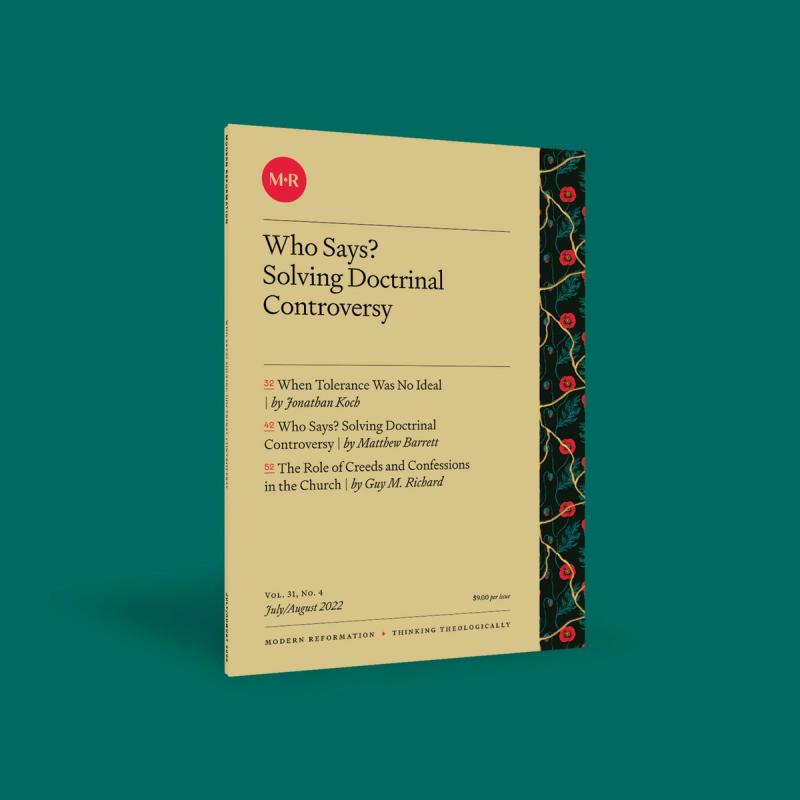The Jesuit priest Clifford Howell has claimed that the very essence of Protestantism “is the principle of private judgement.” This means, Howell charges (as do many others), that Protestantism is at its core inherently divisive. Protestants have responded to this charge over and over again, as when Protestant historian Phillip Schaff remarked that the accusation of a “sect-system” is “a caricature of true Protestantism, and nothing else.” Still, a casual observance of the history of the Reformation movement, particularly in the Anglo-American world, does leave lingering questions: By whose authority are divergent opinions to be adjudicated? Is private opinion really the final arbiter and ever-increasing disunity the inevitable result?
In this issue of MR we’re taking up the question, particularly as it relates to evangelicalism. In our Converse section, we discuss with Rhyne Putman his recent book When Doctrine Divides the People of God. How should we think about doctrine’s potential divisiveness so that we pursue unity in love without compromising biblical truth or personal conscience? And Jonathan Koch takes us on a broad historical tour of the idea of “toleration” in the early modern British context. Quite different from contemporary notions of “tolerance,” in this raucous period of English history, toleration was viewed more as “forbearance.” What might it look like, Dr. Koch challenges us, to take up such forbearance in our own time?
In our Persuade section, Guy Richards’s essay argues that the purpose of creeds and confessions is not first and foremost to create a list by which to judge who is “in” and who is “out.” Their purpose is primarily to promote unity, ensure the peace and purity of the church, and provide protection to those within the church. Along the same lines, Matthew Barrett argues that the Great Tradition serves the church in a twofold way: as a gardener, it nourishes the biblical soil so that the church’s theological reasoning flourishes in truth and faithfulness; and as a guardian, it protects the church’s theological reasoning from heresies that threaten its purity and peace. Particularly in the doctrine of God, he warns, evangelicals abandon the Great Tradition to their own peril.
Also in this issue, we interview Dr. Seblewengel Daniel on the history of the Ethiopian Orthodox Church and its relations to evangelicalism in Ethiopia. The Retrieve section contains a portion of William Twisse’s answer to the Roman Catholic objection to the sufficiency of Scripture, and the always entertaining historical notes of Zack Purvis, this time on the turmoiled history of some of Calvin’s sermons. In the Engage section, Noah Frens points us to promising publications in his Book Preview column.
In his essay “The Catholicity of Christianity and the Church,” Herman Bavinck writes,
The one, holy, universal church that is presently an object of faith, will not come into being until the body of Christ reaches full maturity. Only then will the church achieve the unity of faith and the knowledge of the Son of God, and only then will she know as she is known.
As you take up this issue, pray with us and with the saints the world over: “Amen. Come, Lord Jesus.”
Joshua Schendel Executive Editor







